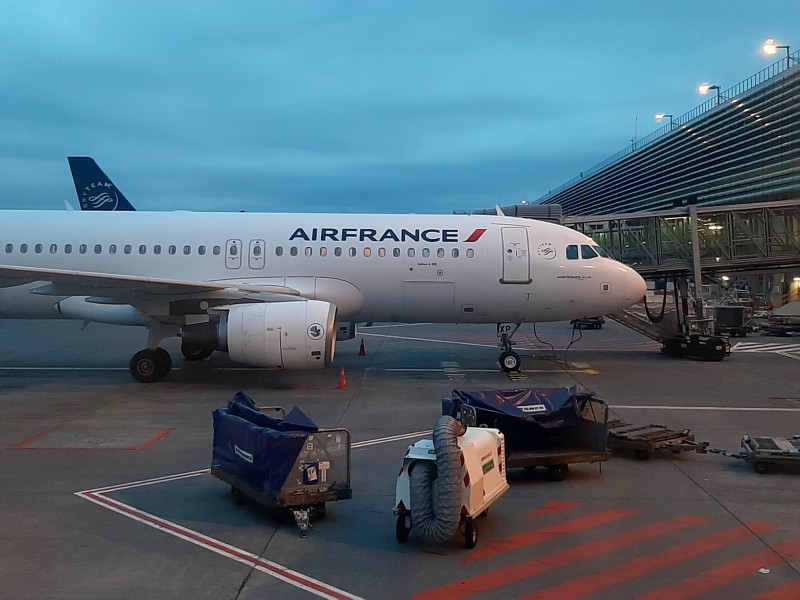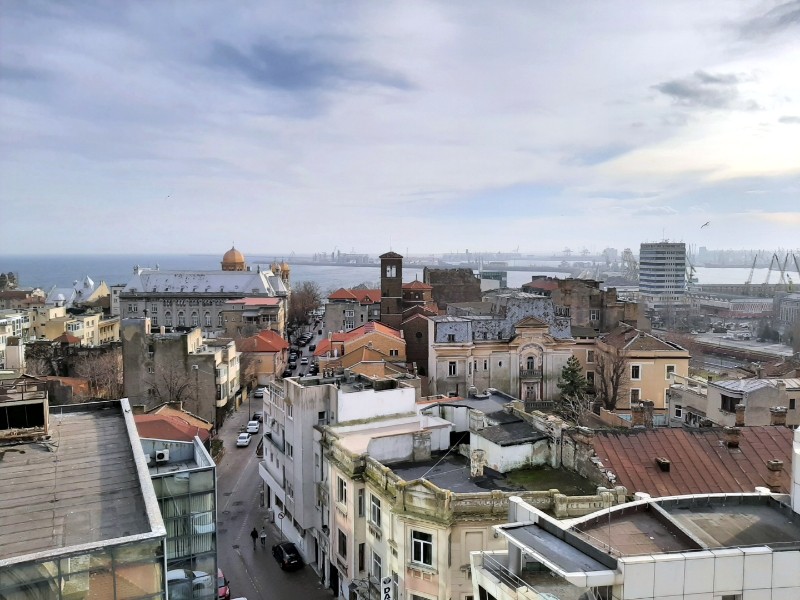A Bleak Travel Winter: Being Pessimistic About Early 2021
With the first month of 2021 being almost over, I find myself being increasingly pessimistic about international travel opportunities.
New Year
For many people, 2020 was a horrible year for quite obvious reasons. Besides the human and economic toll, the corona pandemic also left its mark on international travel and global tourism.
Although I still managed to travel quite a bit during 2020 and had some great experiences, I was still looking forward to a better 2021 in a more open world.
At the New Year, I was even cautiously positive about 2021 and even made some travel goals for the upcoming year – some realistic, a few others a bit more optimistic.
January
With the month of January almost being completed, I however now find myself being less optimistic about travel than I was at the start of the year.
I was silently hoping to make one long-haul trip in the winter of 2021, with Mexico and Tanzania both being excellent candidates given that no PCR test or quarantine is required to enter both countries.
However, I quickly started to realise that there were quite a few risks involved with these plans.
Mexico
If it wouldn’t have been for some hesitation on my side, I might have already pulled the trigger and booked a trip to Mexico.
Unfortunately, I spent too long thinking about possible itineraries and contemplating flight deals, when suddenly the first roadblocks appeared on the horizon.

PCR tests
First it was the Dutch Government which demanded all passengers to submit a negative PCR test as well as a negative antigen test before the flight – a requirement which even counts for KLM transit passengers.
Other governments – most notably the French – followed suit with similar measures. Although opinions differ whether the French PCR test requirements count for Air France transit passengers as well as the wording of the law is a bit ambiguous, it does make any itinerary on Air France a bit risky.
Especially with ambiguously worded requirements, you would be on the mercy of airport gate agents whether or not they would allow you to board without a negative test.
So why not take such a PCR test? Sure, I could theoretically do so, but there would be a lot of extra costs involved and most of all a lot of extra stress. What if the test results get in too late? Or what if the test shows a false positive? Lots of risks – especially when you have non-refundable bookings.
Even when you do manage to get a PCR test done at home – well, good luck doing one for your return in a faraway country like Mexico or Tanzania! Remember, flying back home through Amsterdam or Paris is now impossible without such a test. That’s double the stress, double the costs, and a lot of potential headaches.
And it’s not only the Dutch and the French demanding PCR tests now. Travelling on BA through London? A PCR test is required as well for both transit passengers as well as arrivals into the UK.
There aren’t many options remaining for international air travel this way – certainly not to a country like Mexico given that any transit in the US is firmly out of bounds as well. Sure, I could route through Spain, but what if the Spanish Government would suddenly come up with a similar requirement as well?

Europe
What about travel in Europe then? Well, that’s getting a lot more tricky as well!
To start with the positive news: the corona infection rate in my country (Romania) is fortunately dropping fast. That’s great news, both for public health as well as for the economy. Some measures have already been eased, as restaurants and pubs are now allowed to reopen at 30% capacity.
But when it comes to travel, the decreasing infection rate is a double-edged sword. Romania is basing its corona virus entry requirements on the average infection rates per 100,000 inhabitants.
Simply put, countries can get added to Romania’s “yellow list” (zona galbena) if their cumulative incidence rate of new COVID-19 cases over a rolling 14 day period is higher than Romania. And if you enter Romania from a yellow zone country, you’d have to quarantine for 14 days.
With the corona infection rate in Romania dropping faster than in most other European countries, that means that suddenly the great majority of European countries are on Romania’s yellow list. Although I could visit such countries, it would mean I have to quarantine upon my return – which is a no-no.
Because of this, potentially interesting (and measure-free) countries to visit like Sweden or Portugal are off-limit as I would face restrictions upon my return.

Future
Will it become better in the coming months? I highly doubt. I actually think we will have a bleak winter when it comes to international travel.
Let’s take Sweden for example, arguably the country with the least corona restrictions – both in domestic policies as well as when it comes to international travel and entry requirements.
Even Sweden, the last bastion of freedom in Europe so to say, has now closed its border with Norway and banned entry from their neighbouring country.
Some European leaders even pushed for the EU to issue blanket travel bans to stop all non-essential international travel, although so far national leaders as well as the European Commission have shot such proposals down.
Heck, even Bulgaria is suddenly requiring travellers to submit a negative PCR test despite having low corona infection rates, something which I did not see coming at all (I actually had a trip to Bulgaria booked next weekend which I will likely need to cancel now).
Given that in many European countries corona infection rates are still sky high and there are worries about corona strains from Britain, Brazil and South Africa, I just cannot see restrictions being lifted on a major scale anytime soon.
With people generally being vulnerable for (pulmonary) diseases in the winter months and spending less time outside in the fresh, open air, I don’t think it will be before spring until we will see the easing of corona restrictions across Europe.

Domestic travel
Although I will firmly keep my eyes open for travel opportunities and am ready to pounce immediately for a last-minute trip, I fear that it will not happen.
Instead, it will probably be a winter with many domestic trips inside Romania. That’s certainly not a crime, considering Romania is a large country with some appealing cities and a lovely countryside. So far I already made two enjoyable trips this year inside the country, one to the mountains of Bukovina and one to seaside in Constanta.
Yet I cannot help to feel a bit trapped, missing the freedom to cross borders and to explore different places and cultures.. I can only hope that my fears are unfounded and that the months of February and March will slowly look a bit better and brighter with each day passing!

What do you think about the state of international travel in 2021? Are you just as pessimistic about travel in the next few months, or do you see any bright lights on the horizon? Feel free to share your opinion!

